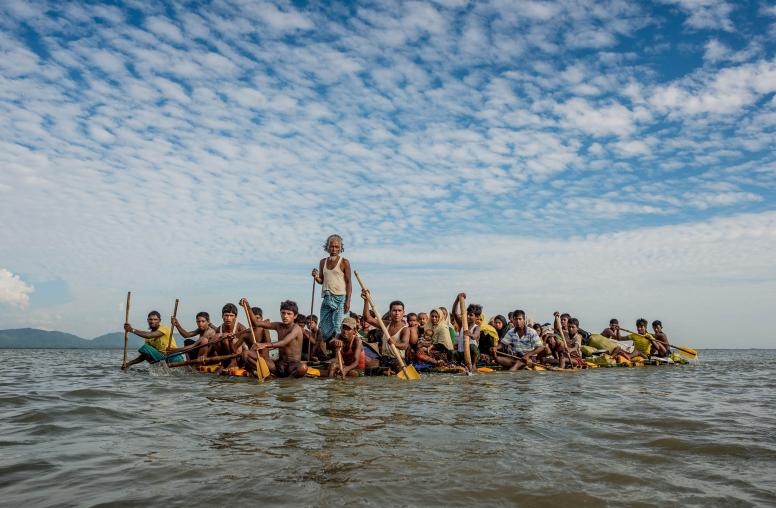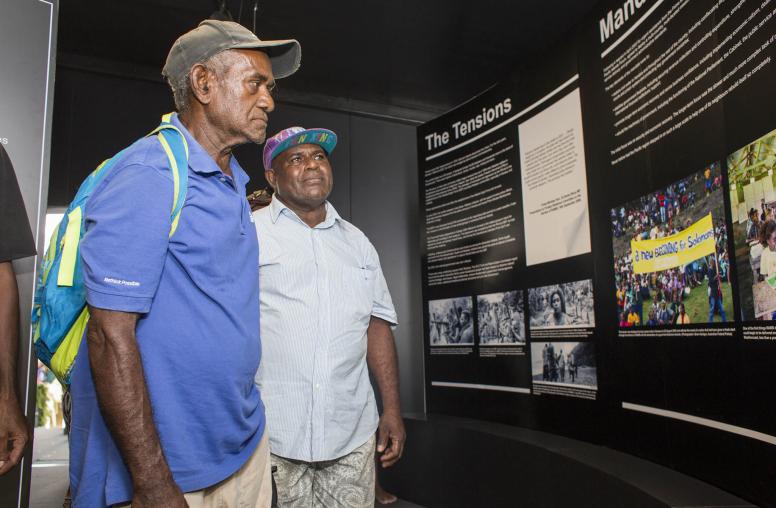USIP Briefing on US-China Relation
Highlights
Richard Solomon, U.S. Institute of Peace
- The briefing opened with an overview by Richard Solomon of the history of U.S.-China summit meetings since President Nixon's trip to Beijing in 1972. The Nixon-Mao Zedong and Carter-Deng Xiaoping summits set the structural foundation for the relationship, and the four other summits, mostly during the eighties, sustained U.S.-China relations. The challenge of the Clinton-Jiang Zemin summit -- the first Presidential-level meeting between the United States and China to be held in Washington since 1985 -- is to overcome the polarized political atmosphere that has derailed regular leadership meetings since the Tiananmen incident of 1989.
- Solomon also listed five contemporary factors that influence the Clinton-Jiang Summit:
- Unlike during the Cold War, the United States and China today have no shared enemy.
- There is concern in the United States about how China will use its growing power.
- The issue of Taiwan, now a democratized and economically advanced society, remains divisive in U.S.-China relations.
- There is weak political support from the political "center" in the United States for a normalized relationship, with strong criticism from both liberal and conservative "ends" of the political spectrum.
- China is in political transition to a post-revolutionary generation of more highly educated and internationally minded leaders with Jiang Zemin having consolidated his leadership after the recent 15th Communist Party conference.
Kenneth Lieberthal, University of Michigan
- Economic development is China's overriding national priority
- Fear of civil unrest remains a serious concern for the Chinese leadership, given the history of division and factional rivalry within China in this century.
- Population control issues, resource insufficiencies, severe environmental problems, and a challenging external regional security environment remain primary challenges for the Chinese leadership.
- Despite an excellent year politically, Jiang's prestige is at stake in managing successfully this visit to the United States, with much riding on his ability to appeal to differing respective expectations of Chinese and American political constituencies.
Nicholas R. Lardy, Brookings Institution
- No progress is expected on China's World Trade Organization (WTO) admission, as the requirements involve politically sensitive economic concessions that touch on China's economic development and reform priorities. There is a risk that China could opt to remain outside the WTO indefinitely, an outcome not in the interest of the United States.
- The U.S. trade deficit remains a sensitive political issue, but Lardy does not deem it significant from an economic perspective.
- The ability of U.S. companies to win Chinese contracts is hampered by Export-Import bank restrictions in both the environmental and nuclear areas, and Tiananmen-era sanctions remain in place. Lardy positively portrayed administration efforts to provide certification that would allow for trade deals in the commercial nuclear sector.
Read Dr. Lardy's The United States and China: A New Framework, a Brookings Policy Brief co-authored with Richard N. Haass.
Randall Shriver, Department of Defense
- There is a need to develop better relations between the two militaries in order to increase understanding of People's Republic of China (PRC) military capabilities and to ensure that there is no misunderstanding regarding U.S. capabilities.
- Military-to-military exchanges support transparency and agreements in the area of maritime safety reduce likelihood of accidental conflict.
- Much progress has been made to date in the bilateral military relationship. Future efforts will focus on furthering dialogue, including perhaps a U.S.-Japan-China trilateral dialogue and more substantive cooperation, such as a joint humanitarian exercise.
Merle Goldman, Boston University
- The average Chinese today has vastly expanded personal and cultural freedoms compared to the Cultural Revolution period, but during the 1990s such freedoms have not extended to politics. Chinese can now change jobs, travel abroad, and complain about local issues, but they cannot criticize their leaders or political system publicly.
- There are distinct constituencies and types of political expression which have been limited. Leftist and strongly nationalistic views, though not necessarily representative of the government, can still be expressed publicly, but since June 4, 1989, those calling for democratic political change have been suppressed, exiled or imprisoned. There has been an increase in the number of religious worshippers, but those who claim allegiance to a body higher than or outside the control of the state, such as Roman Catholics, Tibetans with allegiance to the Dalai Lama and Muslim fundamentalists, are persecuted. A new group suppressed in the late 1990s are workers in state industries, who, with the reform of state industry, are protesting against their loss of jobs and social security. In terms of China's own definition of human rights as economic and social rights, this suppression contravenes one of PRC's basic tenets.
- To improve its relationship with the United States, the Chinese government would be well advised to release prominent dissidents such as Wang Dan and Wei Jingsheng, although there are many others who are also unjustly imprisoned.
- PRC badly needs to reform its political system so that its citizens can use ways other than protest and subsequent suppression to express their grievances.
Media Inquiries should be directed to the Office of Communications by phone at 202.429.3828 or e-mail at usip_requests@usip.org.




